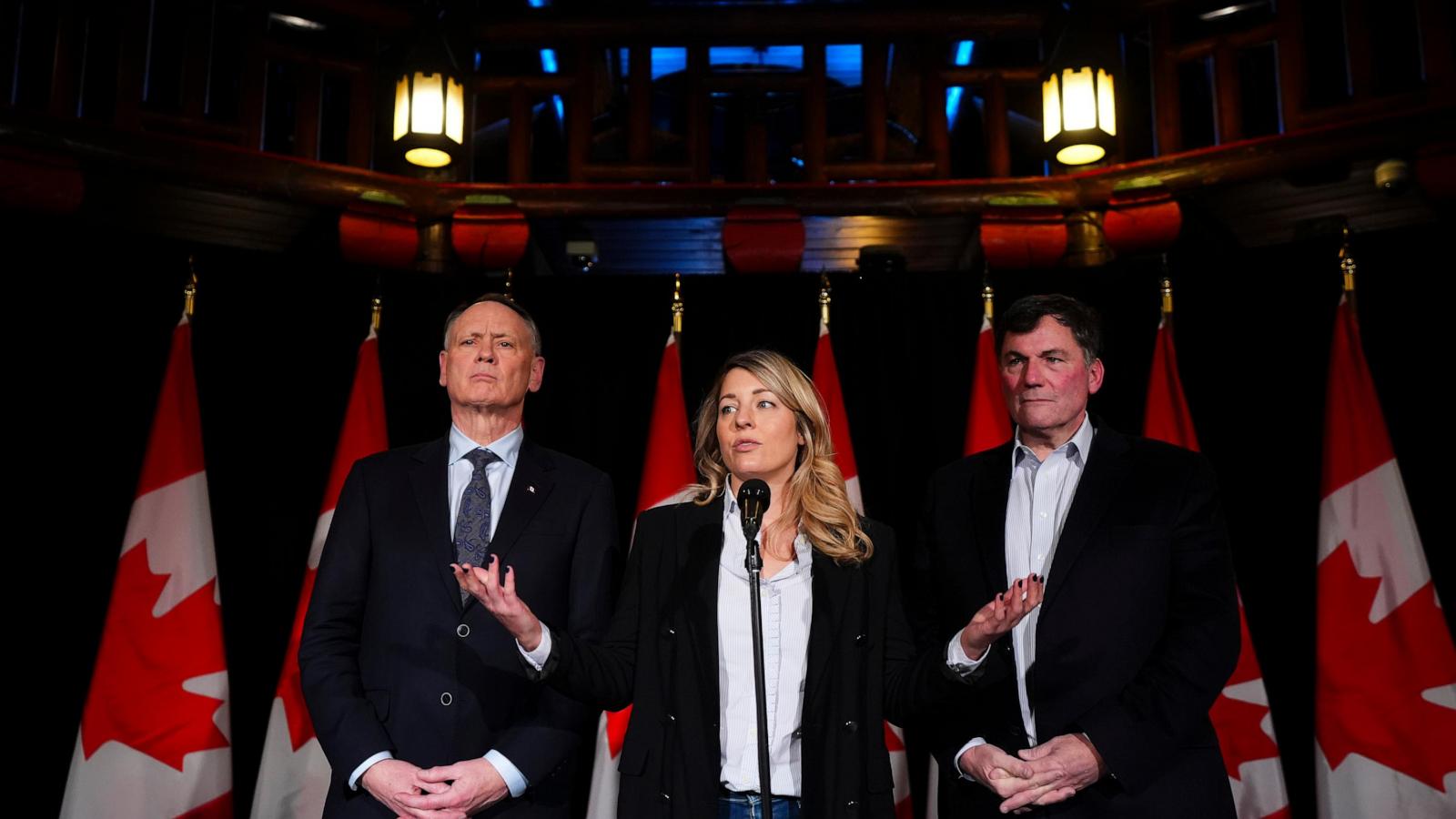Trump's Inauguration Day: A Day of Trade Uncertainty for Canada
President Trump's inauguration day brought a wave of uncertainty for Canada, a nation deeply intertwined with the U.S. economy. While the initial fear of sweeping tariffs on Canadian goods didn't materialize, the threat still looms large. Will the trade relationship between these two North American giants survive? Read on to find out!
The Calm Before the Storm?
The initial relief in Canada was palpable. Trump's inaugural address, while mentioning upcoming tariffs, didn't specifically target Canada. Finance Minister Dominic LeBlanc expressed cautious optimism, emphasizing the mutual benefits of the Canada-U.S. trade relationship and highlighting the strength of the existing free trade agreement. Other Canadian officials, such as Foreign Minister Mélanie Joly and Alberta Premier Danielle Smith, echoed these sentiments, expressing cautious optimism while acknowledging the persistent threat.
Cautious Optimism and The Looming Threat
The Canadian government's response was a mixture of cautious optimism and concern. While relieved that immediate tariffs were avoided, officials stressed that the threat remains, urging close monitoring of the situation. The initial delay may signify a period of assessment, not necessarily a change of policy. The lack of immediate action does not equal the absence of risk.
Economic Interdependence: A Tightrope Walk
The economic interdependence between Canada and the United States is undeniable. A massive amount of trade crosses the border daily, making the relationship vital for both countries' economic well-being. Canada is a top export destination for numerous U.S. states, and a significant portion of Canadian exports flow into the United States, with many concerning essential sectors like automobiles and energy. This fact is crucial in this context of tariffs and economic protectionism.
The Impact of Tariffs: A Cascade Effect
Imposition of tariffs could trigger a cascade effect, negatively impacting countless businesses and workers in both countries. The economic costs may be higher than projected; it could significantly hinder economic growth and cause job losses across various sectors. Many industry experts fear that these projected job losses and general economic fallout may be significant enough to lead to political turmoil on both sides of the border.
The Importance of Diplomacy and Dialogue
Amidst the uncertainty, diplomacy and dialogue remain critical. Canadian officials have engaged in a high-level approach, trying to ensure that any discussions or policy shifts preserve the economic relationship built between the U.S and Canada for so many years. This strategy aims to create long-term trade relations while navigating the uncertain political climate.
Finding Common Ground and Navigating Uncertain Waters
Successfully negotiating trade policies while considering both economic and political implications requires an understanding of both perspectives. The Canadian government continues to emphasize the economic advantages for the United States in maintaining and deepening trade ties. Canada’s ambassador to Washington, Kristen Hillman, played a pivotal role in facilitating these efforts.
The Future of Canada-U.S. Trade Relations
The long-term future of Canada-U.S. trade relations remains uncertain. The Trump administration's focus on "America First" could present further challenges ahead. However, the economic realities and deep-rooted ties between the two nations suggest that complete rupture is unlikely. However, adaptations will be required.
Preparing for What’s Ahead
The trade relationship between the U.S and Canada may shift under current circumstances. Both countries must adjust to this new paradigm and develop contingency plans to handle various outcomes. Careful planning will prepare businesses and individuals for this potential adjustment.
Take Away Points:
- The inauguration day brought both relief and concern to Canada regarding potential tariffs.
- The economic interdependence between the U.S. and Canada is extensive.
- The Canadian government employs both an approach of optimism and concern regarding current developments.
- Diplomacy remains vital in navigating potential future conflicts and in ensuring a continuation of fruitful trade relations.









